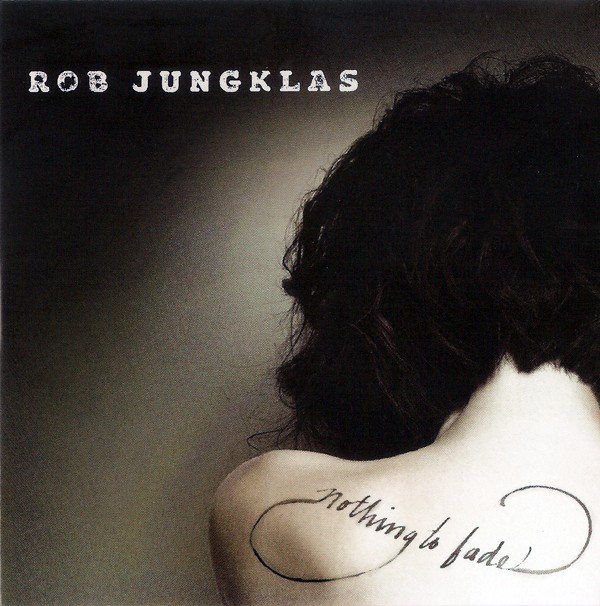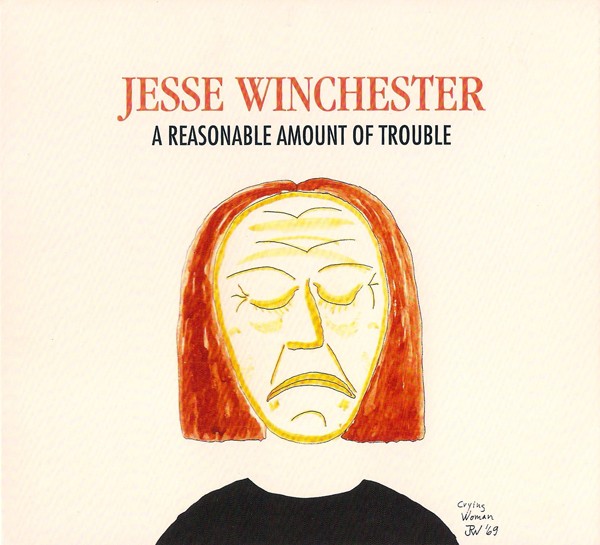
Rob Jungklas
Nothing to Fade
Self-release
There is a striking contrast between Rob Jungklas’ last two albums. Where 2013’s The Spirit & the Spine was a tortuous exploration of religious dread, his latest, Nothing To Fade, opens with the expansive acoustic universe of “Mary Sees Angels.” Anchored in tuned-down guitars and a five-string bass, a tone of redemption emerges from the depths. This tone continues in “Cop For You,” which has a hint of Cat Stevens amid the whooshy, compressed drums. Jungklas produced with Chad Cromwell and Jack Holder. Cromwell is a Nashville-based Memphian who has drummed for Neil Young and Mark Knopfler. Holder is known for his work with Black Oak Arkansas and Cobra. Jungklas has an affinity for religious language. But he never gets far from the edge. The black hounds gather for “Crawl the Moonlight Mile,” but the dark mood doesn’t dominate this record like it did his last one. The notions of faith and doubt permeate Jungklas’ work, but what sets him apart from “Contemporary Christian” music is his willingness to descend into Hell and the fact that he knows what good acoustic guitars sound like. It’s good to hear his voice emerge from the darkness.

Jesse Winchester
A Reasonable Amount of Trouble
Appleseed
Recordings
Jesse Winchester recorded A Reasonable Amount of Trouble shortly before his death in April. The album sounds much larger and more rambunctious than one might expect from a last effort. But producer and guitarist Mac McAnally lets Winchester’s voice hover in its own space among instruments that do more than support the song. Recorded at the Blue Rock Artist Ranch in Wimberley, Texas, this record is an acoustic marvel. McAnally has written for Jimmy Buffett, Alabama, and Kenny Chesney, among others. His acoustic palette is marvelous and does justice to Winchester’s melodies. Winchester’s voice is a grey line between himself and the air. The instruments don’t sit behind the voice as much as they mix with it. It’s refreshing and no small feat given Winchester’s leaf-on-the-wind vocal approach to delivering a lyric. Winchester had dramatic sense of melody and knew when to whisper and when to start a fire. The liner notes address Winchester’s aversion to writing from a dark place, even though the songs were written during his treatment for cancer. The album closes with “Just So Much.” “There is just so much that the Lord can do.” The last verse is an unflinching final testament to a writer, thinker, and musician.

John Kilzer
Hide Away
Archer Records
The Reverend John Kilzer’s Hide Away comes out on October 14th. It’s his first offering from Archer Records. Like Jungklas, Kilzer wrestled with the music industry in the 1980s, signing and releasing two albums on David Geffen’s DGC in the late 1980s and early 1990s. Kilzer was an All-American forward for the Memphis State Tigers in the late 1970s. That level of Memphianity gets you a backing band composed of Rick Steff, Greg Morrow, Sam Shoup, Steve Selvidge, Alvin Youngblood Hart, and Luther Dickinson. Kilzer delivers contemplative songs, which one would expect from an ordained minister. The struggle between the divine calling and our earthly vessels is evident througout the record. But Kilzer took musical bona fides into the pulpit rather than taking the pulpit to the stage. That’s an important distinction and is aurally obvious from how much Kilzer’s voice gets wonderfully seduced by temptation.
“Lay Down” is a call to peace that transcends the stupid platitudes of hippies and casts the dialog for peace in biblical dogma. This record amounts to a nuanced and honest approach to a civic Christianity that sadly goes unnoticed in the culture wars. “Uranium won’t feed the hungry.”
“Until We’re All Free” marches a foot or two behind the Staple Singers, but is on the same path. The band Kilzer has assembled allows him to craft each song into its own sound. Throughout, the record benefits from the assembly of talented guitarists. Steff’s organ parts stand out in particular. “The White Rose and the Dove” is a sonic blend of “Stairway to Heaven” and “Blind Willie McTell” and therefore a bit of divine inspiration. On “Babylon,” Kilzer pulls out his judging finger, but he points it the right way. “You think God can hear your prayers/ You ignore their hungry stares.” The album might be a little long in places. I could live without “Love Is War.” But for the most part, Christianity as practiced in this country and this state in particular could use more leadership like Kilzer. He offers a soulful, compassionate alternative to the louder sort of God squadder. And he did so by making a great sounding record. Here’s to that.